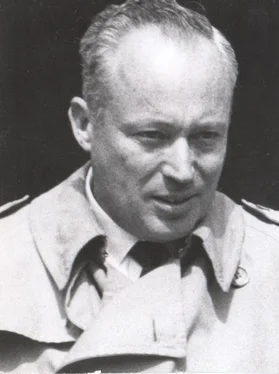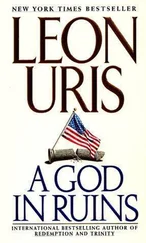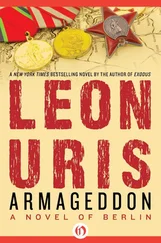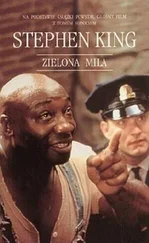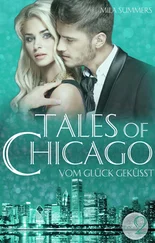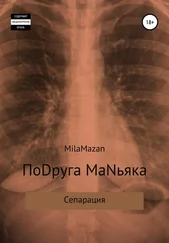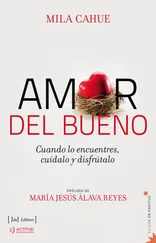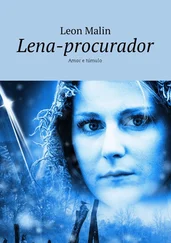“Passover,” Andrei said sardonically. “The feast of liberation. What a damned joke.”
Simon nodded in agreement. “Oh, where is Moses to lead us through the Red Sea and drown Pharaoh’s army! The only pillars of fire are the ones that will devour us.”
“Well,” Andrei said, “we have to have the seder.”
Chris shook his head. “You Jews astonish me. In the pits of hell, about to be destroyed, and you mumble rituals to freedom.”
“Doesn’t one cry out more desperately for freedom when it is taken from him? What better time can there be than tonight to renew faith?” Alexander Brandel said.
“Come now, Alex,” Chris prodded. “Andrei, you, Simon ... most of those out there are not renewing a faith they’ve ever kept. Rodel, the Communist, wishes you well. What was his synagogue?”
“Yes, Chris, you are right in a way. And it is very strange that we who have not lived like Jews have chosen to die like Jews.”
“There is no reason and there is every reason,” Simon said. “We only know ... we must have the seder.”
Passover. The night of the seder. The retelling of a story from the ancient Hagada as old as recorded history. The liberation from Pharaoh’s bondage.
How Jewish Warsaw would have reverberated with the weeks of unabated excitement before the war! Alex tried to remember the Tlomatskie Synagogue ... crowds jammed to watch the elite fill the marble temple.
In the homes of the poorest, brass and silver candlesticks shone to a glisten and the white tablecloths and shining dishes dazzled the eye and the kitchens smelled of baking and candies prepared with the very soul of the homemaker.
The tables were fixed with special foods symbolizing the suffering of Moses and the tribes. The diced nuts and bitter herbs for the mortar of Pharaoh’s bricks which the Jews laid in bondage.
What the hell kind of bitter vetch could there be for the ghetto in the future, Alex thought! What symbol would there be for sewer water!
Watercress for the coming of spring, and the egg for the symbol of freedom. Well, spring was coming to Warsaw. There was no egg, no watercress. Forty thousand terrified people mumbling ancient prayers, begging to an unhearing God to fill His promises to bring forth ... to deliver ... to redeem ... to take the tribes of Israel. In six hundred bunkers the ritual was repeated in numbed and tear-filled voices while the Polish Blue Police took their positions around the ghetto walls every seven meters.
But ... the story had to be told. Was it ever to be told with greater futility? Alexander wondered. Still ... it had to be told.
A tiny bench stood at the junction of the two corridors of Mila 18. They held a pair of candlesticks Moritz Katz had managed to salvage. Substitutes took the place of the prescribed symbolic foods.
Alexander pushed his way past the jam of humanity into Rabbi Solomon’s cell.
“We are ready to begin the seder,” he said. He helped the old man to his feet. Solomon was no longer able to see except in shadowy outlines, nor was he able to read. But that did not matter. His voice was yet clear and he knew the Hagada by memory. He was led to the bench and seated upon a pillow, for the pillow symbolized the free man who relaxes while he feasts. From rooms Auschwitz, Belzec, Chelmno, Majdanek, Treblinka, and Sobibor, the Fighters and the children pressed to the door in bated breath to hear—Zionists plain and fancy, infants, Communists, Bundists, Orthodox, and smugglers.
One could hear gasping in the silence. The air was putrid and the heat oppressive.
The silver goblet in the center of the bench was called Elijah’s cup. When the Prophet who had foretold the second coming of Israel drank from the Passover goblet, the prophecy would be fulfilled. Solomon’s ancient hands felt over the bench for the cup. He lifted it and jiggled it. It was empty, for there was no wine.
“Perhaps,” he said, “this is a way we are being told that Israel will come again. Perhaps Elijah has come and drunk.”
Someone began to sob, but one sob was melted into another. All a shimmering mass of bodies. Another sobbed, and another.
“A learned man walks through a maze searching for rooms marked ‘truth.’ Bits of the puzzle are given us in our Torah and our Mishna and the Midrash and the Talmud. But how strange that the real clues come to us at a time when we least expect them.”
“Momma ... Momma,” a child wept.
Another began praying, and another and another.
The old man’s voice cried out again. “Why are we in this place? What is God trying to tell us? Why have I been spared when all my colleagues are gone? Is there a message for us here?”
Alexander Brandel had never heard Rabbi Solomon rant like this. Why? The weeping was becoming universal. People were remembering glistening candlesticks and tables bending beneath the weight of food. People remembered the faces with smiles of tenderness and lullabies. Sister ... brother ... lover ... they remembered. ...
“Remember the stories of our people!” cried Rabbi Solomon. “Remember Betar and Masada and Arbel and Jerusalem. Remember the Maccabees and Simon Bar Kochba and Bar Giora and Ben Eliezer! No people upon this earth have fought for their freedom harder than we have. Tonight we are on the eve of another fight. Forgive an old man who told you not to use arms, for he realizes now that the truest obedience to God is the opposition to tyranny!”
The bunker was galvanized. Yes! Yes! Alexander trembled. He has found a great key to all of life—to obey God is to fight the tyrant!
The bony hand lifted Elijah’s cup. “Elijah has drunk our wine tonight. Israel will come!” He chanted a prayer of the ages, and the bunker trembled.
And then it was silent once more.
“Let us begin the seder,” he said. “Let us begin our feast of liberation.”
The youngest Fighter in Joint Jewish Forces, an eleven-year-old runner named Benjamin, opened the Hagada to ask the questions.
He asked, “Why is this night different from all other nights of the year?”
And Rabbi Solomon answered firm and unwavering, “This night is different because we celebrate the most important moment in the history of our people. On this night we celebrate their going forth in triumph from slavery into freedom.”
The Fighters in the Franciskanska bunker were tired and dreamy. Wolf and a squad of his people had just finished planting the “kasha bowl” mine in the middle of the Brushmaker’s Gate and returned in time to conduct a symbolic seder. After the seder, the not-yet-twenty-year-old commander announced a great treat.
When he had captured the Brushmaker’s he had found a case of schnapps in the office of Krebs, the disposed overseer. Wolf had hidden it for just such an occasion. Almost all of the eighty Fighters at Franciskanska had no knowledge of liquor, only passing forays with wine and vodka. It was not long before they were all suffused with a lovely, peaceful glow. Wolf, cross-legged on the earthen floor of the main room, began the song fest, playing his accordion. A squad of Communists attached to his command insisted upon singing Russian folk songs hailing victories of the proletariat. Wolf had to show impartiality to his command. He played for them and what they lacked in numbers, they made up in vigor. The Zionists answered with songs of how the pioneers in Palestine had redeemed eroded land. They played and they sang until they were hoarse, and then they hummed nostalgically. Wolf’s accordion was very beaten up and wheezed along with great effort.
The guard changed. Everyone was at peace. The phone rang.
Wolf retreated to his small three-by-six “office.” He lifted the receiver, “Haifa. Chess Master speaking.”
“This is Atlas at Jerusalem. Is the ‘kasha bowl’ in place?”
Читать дальше
